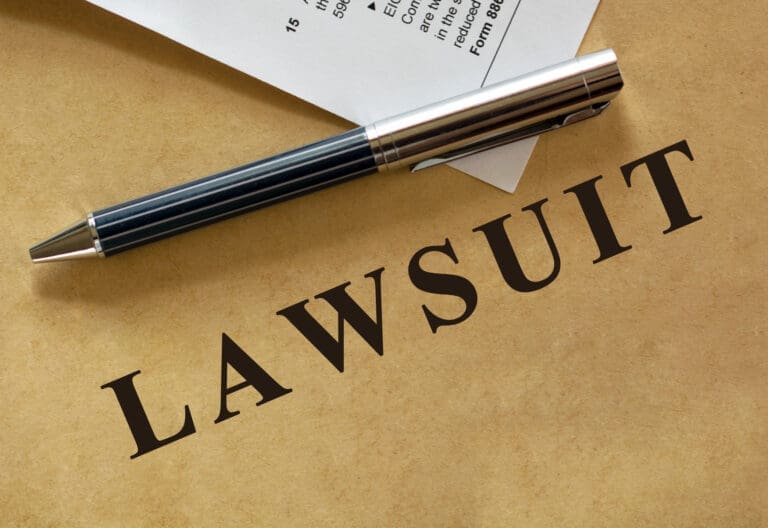
The specter of a federal money laundering investigation is enough to send shockwaves through any business or individual’s financial world. The government’s power to freeze, seize, and ultimately forfeit assets is sweeping, and the mere hint of an investigation can disrupt lives, reputations, and livelihoods. In this environment, understanding the nuances of money laundering defense and the best practices for protecting assets during federal investigation is not just a matter of legal compliance—it’s a matter of survival. The federal government’s approach to financial crime is aggressive, and its tools are formidable. For those who find themselves in the crosshairs, a clear-eyed, strategic response is essential.
Federal money laundering statutes, particularly 18 U.S.C. §§ 1956 and 1957, are designed to cast a wide net. These laws criminalize a broad range of financial activities, from promoting unlawful conduct to concealing the origins of funds and evading reporting requirements. The government’s burden is to prove that the accused knowingly engaged in transactions with illicit proceeds, often relying on complex financial records and circumstantial evidence. Yet, the mere presence of large or unusual transactions can trigger suspicion, even when the underlying funds are legitimate. This reality places business owners, professionals, and high-net-worth individuals at risk, especially in industries where cash flow and financial complexity are the norm.
The first and most critical step in any money laundering defense is to recognize the gravity of a federal investigation. Federal agents have the authority to freeze bank accounts, seize property, and initiate forfeiture proceedings on assets they believe are connected to criminal activity. These actions can occur swiftly, sometimes before formal charges are filed, leaving individuals scrambling to respond. The temptation to move assets or alter financial arrangements is strong, but such actions can backfire, leading to additional charges for obstruction or structuring. The government monitors financial activity closely, and any attempt to hide or transfer assets after learning of an investigation is likely to be viewed as evidence of guilt.
Asset protection, therefore, must be proactive and lawful. The most effective strategies are those implemented before any hint of investigation arises. This includes maintaining clear separation between personal and business finances, keeping meticulous records of all transactions, and ensuring that all financial dealings are transparent and well-documented. For business owners, this means regular audits, compliance with all reporting requirements, and a culture of ethical conduct. For individuals, it means avoiding commingling of funds and being able to trace the source and use of all significant assets.
When a federal investigation is underway, the role of a seasoned white-collar defense attorney becomes paramount. The right legal counsel can guide clients through the maze of federal procedures, challenge the government’s evidence, and protect constitutional rights. One of the most powerful defenses in a money laundering case is the lack of intent. The prosecution must prove that the accused knowingly engaged in laundering illicit funds. If the transactions in question were routine, transparent, and supported by legitimate business purposes, the defense can argue that there was no criminal intent. This is where detailed documentation and a history of compliance become invaluable.
The government’s asset forfeiture powers are among its most potent weapons. Under civil and criminal forfeiture statutes, federal authorities can seize assets they believe are connected to criminal activity, often with minimal notice. Civil forfeiture, in particular, allows the government to take property without charging the owner with a crime, relying on the legal fiction that the property itself is “guilty.” This process places the burden on the property owner to prove the legitimacy of their assets, a daunting task without proper documentation and legal support.
For those facing asset seizure, time is of the essence. The government may issue a restraining order or a seizure warrant, freezing bank accounts and other assets. In some cases, these actions are taken ex parte, meaning the property owner has no opportunity to contest the seizure before it occurs. Once assets are frozen, accessing funds for legal defense or business operations becomes a challenge. This is why preemptive asset protection strategies are so critical. Establishing trusts, using separate legal entities, and maintaining clear records can help shield assets from government overreach, provided these measures are taken before any investigation begins.
The Bank Secrecy Act (BSA) and related regulations impose strict reporting requirements on financial institutions and certain businesses. These laws are designed to detect and prevent blanqueo de dinero by requiring the reporting of large cash transactions, suspicious activity, and international transfers. Failure to comply with these requirements can trigger investigations and expose businesses to significant penalties. For those in regulated industries, robust compliance programs are essential. This includes employee training, regular audits, and the use of technology to monitor transactions for red flags.
In recent years, the federal government has intensified its focus on financial crime defense y asset forfeiture protection. High-profile cases involving cryptocurrency, international wire transfers, and shell companies have highlighted the evolving nature of blanqueo de dinero schemes. The government’s use of advanced analytics and artificial intelligence to detect suspicious patterns means that even sophisticated actors are not immune from scrutiny. For businesses and individuals alike, staying ahead of regulatory changes and emerging threats is a constant challenge.
One of the most significant trends in money laundering enforcement is the use of parallel proceedings. The government may pursue civil, criminal, and administrative actions simultaneously, increasing the pressure on the accused. For example, a business under investigation for blanqueo de dinero may face asset seizure, regulatory fines, and criminal charges all at once. Navigating these overlapping proceedings requires a coordinated defense strategy and a deep understanding of the legal landscape.
El papel de white collar crime attorney has never been more important. These professionals are skilled at dissecting complex financial transactions, challenging the government’s evidence, and negotiating with prosecutors. In many cases, early engagement with the government can lead to favorable outcomes, such as reduced charges or the return of seized assets. However, this requires a proactive approach and a willingness to cooperate where appropriate, without compromising one’s legal rights.
For individuals and businesses seeking to protect their assets, the key is to act before trouble arises. This means conducting regular risk assessments, implementing strong internal controls, and fostering a culture of compliance. In the event of an investigation, immediate steps should be taken to preserve evidence, secure legal representation, and avoid any actions that could be construed as obstruction. Transparency and cooperation, when guided by experienced counsel, can often mitigate the worst consequences of a federal probe.
La intersección de financial investigation lawyer expertise and asset protection strategies is where the battle is often won or lost. Lawyers specializing in this area understand the nuances of federal law, the tactics used by prosecutors, and the best practices for defending against asset forfeiture. They can advise on the use of trusts, offshore accounts, and other legal structures, always with an eye toward compliance and transparency. The goal is not to hide assets, but to ensure that they are protected from unjust seizure while remaining fully within the bounds of the law.
The government’s focus on anti-money laundering strategies has also led to increased scrutiny of professionals such as accountants, lawyers, and real estate agents. These “gatekeepers” are often required to report suspicious activity and may themselves become targets of investigation if they fail to do so. For professionals in these fields, understanding their obligations under the law is critical. Regular training, clear policies, and open communication with clients can help prevent inadvertent violations and protect both the professional and their clients from legal jeopardy.
In the digital age, the challenges of criminal asset protection have grown more complex. Cryptocurrencies, online banking, and global financial networks have created new opportunities for both legitimate business and illicit activity. The government’s ability to trace digital transactions is improving, but so too are the methods used by those seeking to evade detection. For those under investigation, understanding the risks and opportunities presented by digital assets is essential. Proper documentation, secure storage, and compliance with all reporting requirements are the foundation of a strong defense.
The penalties for money laundering are severe, including lengthy prison sentences, substantial fines, and the loss of assets. In addition to criminal penalties, those convicted may face civil lawsuits, regulatory sanctions, and irreparable damage to their reputation. The collateral consequences can be devastating, affecting family members, business partners, and employees. This is why a comprehensive defense strategy must address not only the immediate legal threats but also the long-term impact on all aspects of one’s life and business.
One of the most effective ways to mitigate the risk of asset seizure is to demonstrate the legitimate source of funds. This requires detailed records, clear documentation, and the ability to trace the flow of money from its origin to its final destination. For businesses, this means maintaining invoices, contracts, and bank statements that support the legitimacy of all transactions. For individuals, it means being able to explain the source of large deposits, gifts, or transfers. In the absence of such documentation, the government is more likely to assume that assets are tainted and subject to forfeiture.
El concepto de asset forfeiture protection is rooted in the principle that property should not be taken without due process. However, the reality is that the burden often falls on the property owner to prove their innocence. This is a reversal of the traditional presumption of innocence and underscores the importance of proactive asset protection measures. Legal structures such as trusts, limited liability companies, and family partnerships can provide a layer of protection, but only if they are established and operated in compliance with all applicable laws.
For those facing a federal investigation, the psychological toll can be as great as the financial risk. The uncertainty, stress, and public scrutiny can be overwhelming. It is essential to maintain perspective, seek support from trusted advisors, and focus on the steps that can be taken to protect one’s interests. This includes open communication with legal counsel, careful management of public statements, and a commitment to ethical conduct throughout the process.
El papel de federal indictment defense is to challenge the government’s case at every stage. This includes filing motions to suppress evidence, challenging the sufficiency of the indictment, and seeking dismissal of charges where appropriate. In some cases, it may be possible to negotiate a settlement or plea agreement that minimizes the impact on assets and reputation. However, this requires a clear understanding of the risks and benefits of each option, as well as the willingness to fight when necessary.
The government’s use of asset recovery legal tools is expanding, with increased cooperation between federal, state, and international authorities. This means that assets located overseas are not immune from seizure, and efforts to hide or transfer property across borders are likely to attract additional scrutiny. For those with international holdings, compliance with all reporting requirements and the use of legal structures that provide transparency are essential.
La importancia de legal compliance defense cannot be overstated. Businesses and individuals must stay abreast of changes in the law, implement robust compliance programs, and seek legal advice when in doubt. Ignorance of the law is not a defense, and the penalties for non-compliance can be severe. Regular training, internal audits, and the use of technology to monitor transactions are all part of a comprehensive compliance strategy.
In the current environment, the government’s focus on money laundering penalties is sharper than ever. High-profile prosecutions, aggressive asset seizures, and substantial fines are the norm. For those under investigation, the message is clear: the government will use every tool at its disposal to pursue suspected money laundering and recover assets. The best defense is a proactive, well-documented, and legally sound approach to asset protection.
La intersección de financial crime defense and asset protection is where the most effective strategies are developed. This requires a deep understanding of the law, the ability to anticipate government tactics, and the discipline to implement best practices before trouble arises. For those who wait until an investigation is underway, the options are limited and the risks are high.
In conclusion, the challenge of protecting assets during federal investigation is formidable, but not insurmountable. With the right combination of legal expertise, proactive planning, and a commitment to compliance, individuals and businesses can navigate the complexities of federal money laundering investigations and emerge with their assets—and their reputations—intact. The key is to act early, document everything, and seek the guidance of experienced professionals who understand the stakes and the strategies required for success.
El paisaje de money laundering defense is constantly evolving, shaped by new technologies, changing regulations, and the government’s relentless pursuit of financial crime. For those who find themselves under investigation, the path forward is challenging but navigable. By focusing on transparency, compliance, and proactive asset protection, it is possible to withstand the pressures of a federal probe and protect what matters most. The lessons of the past are clear: those who prepare, document, and defend with integrity are best positioned to weather the storm and secure their future in an uncertain world.
Citations:
- Protect Assets from Federal Investigation
- Defending Federal Money Laundering Charges
- Asset Protection Against Federal Seizure
- AML Compliance Trends for 2025
- Finding Low-Competition SEO Keywords
- Federal Money Laundering Statutes
- Navigating Federal Money Laundering Prosecutions
- Guide to Federal Money Laundering Laws
- Strategies for Federal Money Laundering Defense
- 2025 AML and Financial Crime Trends
- Low-Competition Keyword Strategies
- Defending Against Money Laundering Charges
- AML Technology Trends for 2025
- Effective Money Laundering Defense Tactics
- FBI Asset Forfeiture Overview
- Asset Forfeiture in Money Laundering Cases
- Protecting Assets in Federal Investigations
- Concealing Assets in Federal Court Cases
- Defending Federal Money Laundering Charges
- Money Laundering Defense Strategies
- Protecting Estate During Criminal Investigations
- Skilled Defense for Money Laundering Charges
- Asset Protection in Federal Litigation
- Money Laundering Statistics and Insights
- Top AML and Anti-Fraud Priorities
- Anti-Money Laundering Market Trends
- Finding Zero Search Volume Keywords
- Nonprofit SEO Keywords for 2025
- Fraud and AML Trends for 2025
- Keywords in Adverse Media Screening
- SEO Strategies for Federal Crime Law
- Project 2025 Impact on AML Capabilities
- Criminal Defense Attorney SEO Keywords
- Boost SEO with Backlinks and Keywords
- Financial Crime Prevention in 2025
- Treasury on Money Laundering Issues
- Examples of Money Laundering Schemes
- Legal Strategies for Money Laundering Defense
- Money Laundering and Asset Forfeiture
- Major Money Laundering Case Studies
- Money Laundering and Fraud Crimes
- IRS Money Laundering Investigation Guidelines
- Notable US Money Laundering Cases
- Overview of Federal Money Laundering
- Money Laundering in Racketeering Cases
- Stages of Money Laundering Explained
- Money Laundering Legal Overview
- Federal Money Laundering Defense Attorney
- Federal Anti-Money Laundering Defense
- Protecting Assets from Federal Seizure
- Law Firm SEO Keyword Strategies
- SEO Keywords for Legal Professionals
- Financial Services Litigation Trends 2025








